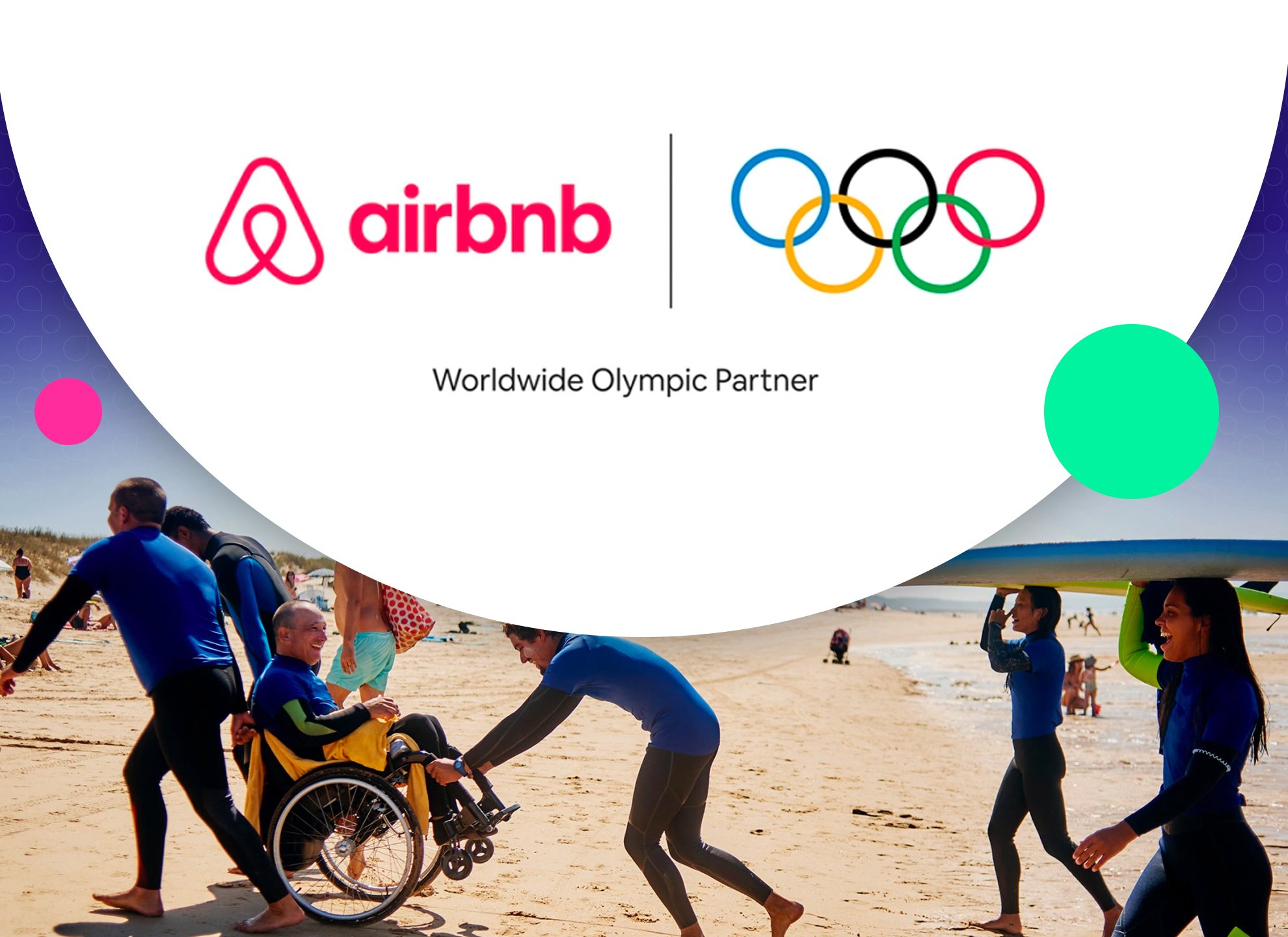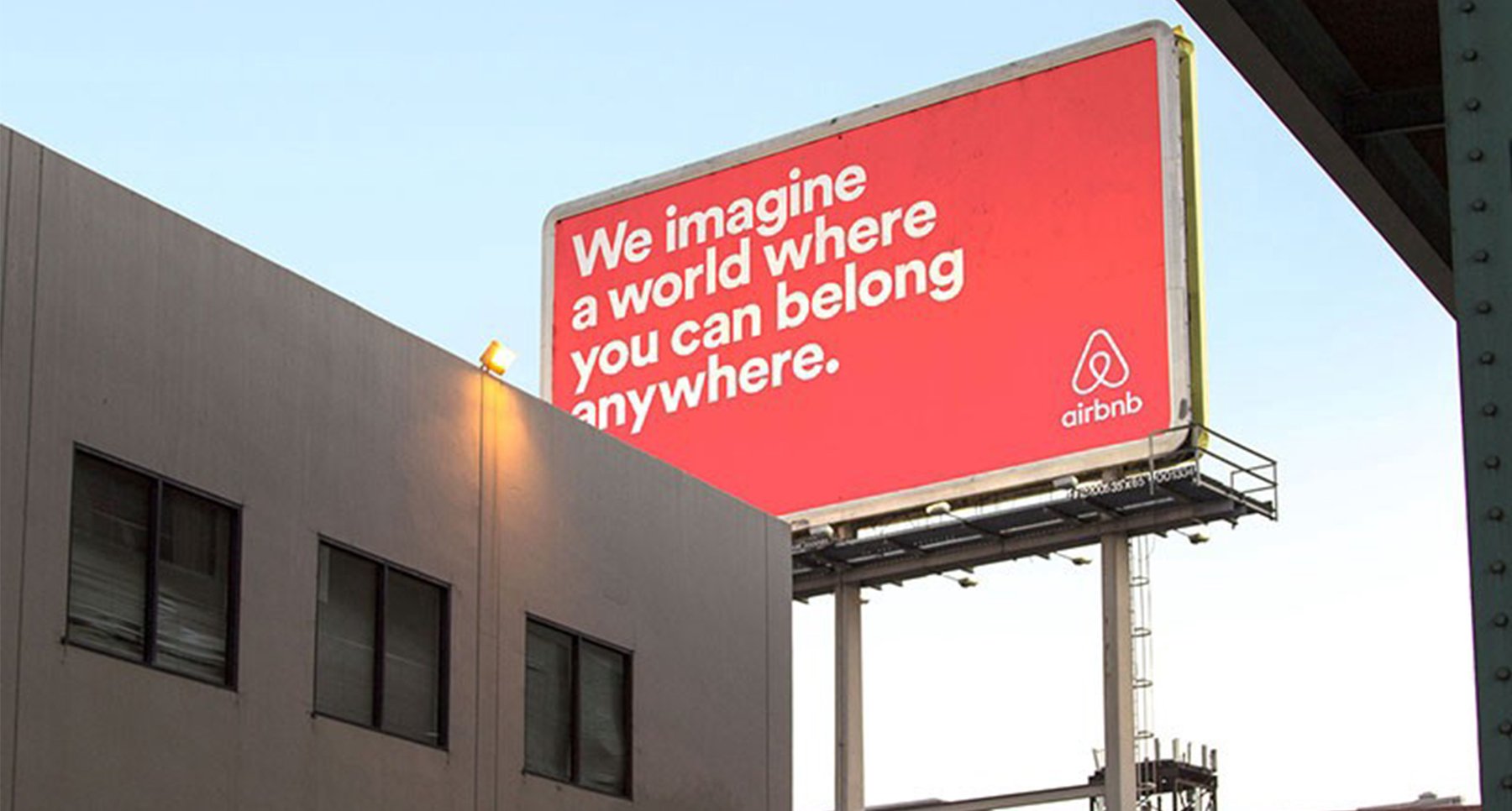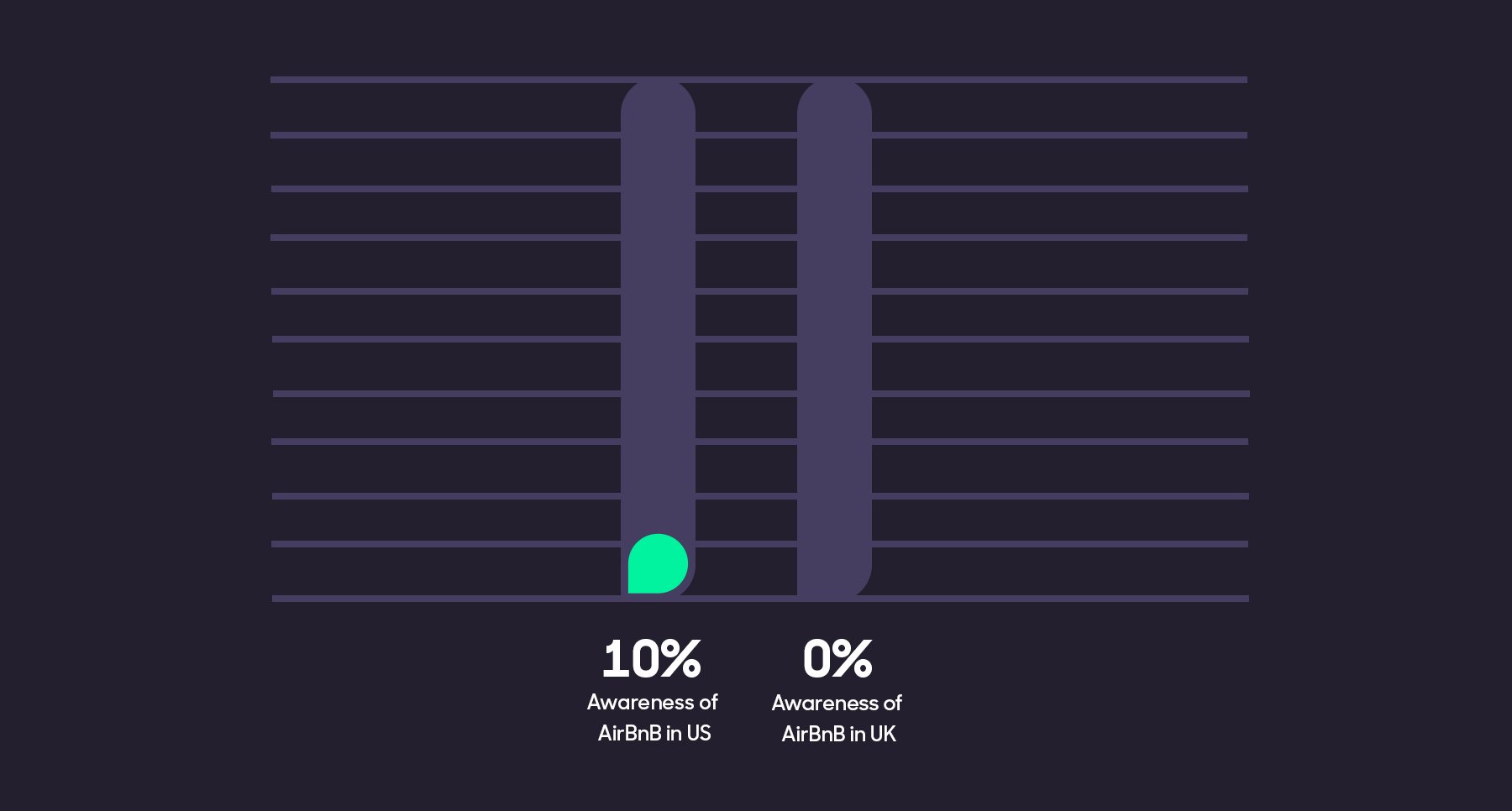Posted on August 17, 2021
Updated on March 10, 2023
5 min read time

$500m is the value of money that was spent by Airbnb on a nine-year Olympic sponsorship contract, that will see them through to 2028.
As we look back on this year’s Olympics, we wanted to explore the investment that was made by Airbnb, judging how it will impact the brand in the long-term.
Ultimately, was it worth it?
Sponsorships are a great way to increase brand visibility and reach - attracting a highly engaged audience that’s relevant to your brand.
But they aren’t a walk in the park and successful partnerships require significant investment, effort and budget, as it takes time to build strong relationships. Typically, the brands that get the most out of sponsorships are willing to make a commitment to invest what’s needed to activate the relationship. Those that put a genuine effort into collaboration will reap the highest rewards.
The best kinds of sponsorships are those that are deeply in tune with the wants and needs of the customers being addressed. A great example of this is the UK’s beloved reality show, Love Island, as the sponsors are completely in tune with the needs of the target audience. The entire sponsoring package has strategic clarity, from popular food delivery service, Just Eat to beauty and clothing brands, Boots and I Saw It First. Just Eat advertises alongside the show, and since it runs across dinner time, there’s a real need for this service. In addition to this, the sponsorships with Boots and I Saw It First are incredibly clever, as it gives customers an easy opportunity to buy what they see on the show.
A good sponsorship makes sense. Red Bull gives you energy, so it makes sense this brand chooses to sponsor extreme sporting events, as it’s consistent with what consumers have come to expect from the brand. The brand isn’t asking their target audience to take a big leap of faith and reimagine them in a new way, they’re simply extending their value proposition to a similarly minded partner.

Airbnb was created with the idea of safety and comfort in mind - creating a ‘home away from home’ to help travellers feel at ease when on vacation. But the brand is rapidly changing and evolving with the times and is now being seen more and more as an exotic luxury destination provider. Airbnb is stepping away from its roots of security and comfort and taking on the idea of experience and adventure. Its latest campaign is all about unforgettable getaways that are unique and special, and only possible because of the incredible hosts behind them.
With that in mind, let’s evaluate the partnership between Airbnb and the Olympics.

The value proposition that was created by Airbnb for the Olympic partnership incorporates the catchphrase, ‘Host the World’. This is an idea that centers around adventure, community, and bringing people closer together. Here we see Airbnb firmly discarding the brand identity of convenience and functionality, and instead immersing themselves fully into the adventurous and exotic life of the Olympics. Clearly, the Olympics has given Airbnb the perfect opportunity to show off its newer and more modern brand identity.
From a functional perspective, the partnership makes sense too. It’s closely in tune with what the audience is looking for - comfortable homes for athletes and spectators. Partnering with Airbnb will help the Olympics to develop the communities surrounding the games, as local residents will benefit by renting out their homes, and it will encourage more internationals to come to the games, as they know they can get a good deal on accommodation through Airbnb.
Kicking off an Olympic campaign that has travel and international communities at its core, would have been a huge challenge for Airbnb this year. COVID-19 restrictions reduced the number of local attendees at the games and stopped international travellers from entering Tokyo. It really cannot be underestimated what a huge blow this would have been for the brand, whose activations would largely have been based around housing international visitors to Japan.
The first year of any campaign is always a struggle – as it’s the building year, where a lot of effort and groundwork is put in, but minimal returns are seen. During this time, brands lay the foundation for the following years. But this year it doesn’t look like Airbnb activated much around the partnership – potentially because they couldn’t due to restrictions? Usually, you’d expect a big sponsor to spend on ATL activity but judging by their YouTube, it seems a few thousand views is all the brand has garnered since they kicked off with the Olympics.
When activating a partnership, brands can either focus on growing reach or boosting the perceptions of their brand with existing users. Because of the pandemic, it looks like Airbnb’s strategy focused on the latter. They created the Olympics ‘Experiences’ programme, a series of online events, hosted on the Airbnb website, featuring motivational talks from athletes, a segment on refugee athletes, and an inside look into the games. In doing so, the brand has extended the experience of the Olympics beyond Tokyo, allowing its audience at home to feel more connected.
The money raised from these experiences will also go to the athletes involved to help them to create their own revenue streams. This is part of Airbnb’s $8 million travel grant, which aims to support Olympian and Paralympian athletes in the games, developing new opportunities for these athletes.
Using our real-time analysis that looks into the feelings and thoughts of real people, we’ve deduced how people are responding to the Airbnb partnership. We’ve interacted with over 3,000 people over the last 3 months to see how effective the campaign has been. And we’ll be using our ProQuo Score as a measure, as it’s been proven to determine the strength of relationships between brands and consumers.
The highest gains over this period were seen within the 21-40 year old segment, where the ProQuo Score shot up by 7%. This corresponds with the typical audience that watches the Olympics, which largely falls within this range. In comparison, the ProQuo Score for the 41-60 segment decreased by 3%, as is expected. In addition to this, the brand’s Popularity grew by 3% and Accessibility shot up by 6%, showing consumers thought Airbnb was more well liked during this time, as well as easier to find.


We wanted to find out if people were aware Airbnb was a main sponsor for the event. The responses showed a severe lack of awareness both in the US and UK markets, with only 10% aware of the partnership in the US and a shocking 0% awareness in the UK. This is even more significant when considering that 7% of this group remembered Booking.com advertising for the event but not Airbnb.

Yet, the Airbnb scores for users during this time have shot up, compared to non-users. This change is expected as it reflects the brand strategy mentioned above, of making the most of resources and focusing on existing customer loyalty, rather than reach.
To judge whether Airbnb’s sponsorship was successful, first it’s important to understand the purpose of the campaign. Was it awareness, brand loyalty or credibility?
If awareness, the campaign could be deemed a failure, as the brand’s scores only shifted marginally during this time. And for such an extensive investment, you would expect bigger gains.
If brand loyalty was the aim, the campaign was indeed a great success. We can see this through the ProQuo Score above, as during this period, users experienced a 3% surge. This shows they recognized and enjoyed Airbnb’s activations.
If establishing credibility was the goal, the sponsorship could also be more successful than it first appears. Airbnb signed the sponsorship deal ahead of their IPO in December 2019. Embarking on this sponsorship is a bold move from Airbnb that would have undoubtedly impressed investors, as it shows the brand as a global player. Other sponsors include big names like Toyota and Visa, so Airbnb is proving its worth amongst established contenders. Forbes have even commented on this move, mentioning Airbnb as joining the ranks of ‘Intel, Omega, Panasonic, P&G, Samsung, Toyota and Visa’ and commenting ‘not bad for an 11-year-old “disruptor”.’
On the ProQuo AI platform, we can see the sponsorship has impacted public perception. 52% of Americans have said the sponsorship has changed how they view the brand for the better and 28% agreed in the UK, using terminology like ‘global’ and ‘big’ brand to describe Airbnb.
Ultimately, regardless of whether the partnership aimed to boost awareness, drive credibility or establish brand loyalty, we can clearly see Airbnb are victims of the time. Activating during a pandemic would be a struggle for any brand, let alone a travel company. We’re sure with better luck next year and fewer restrictions, the Olympics will be an even bigger commercial success for the brand.

We can’t wait to see what they’ve got in store.
For more on the Olympics...
Our intelligent platform will take your brand further, faster.
Don’t believe us?
© 2020-2023 ProQuo AI International
All rights reservedWebsite by Blend